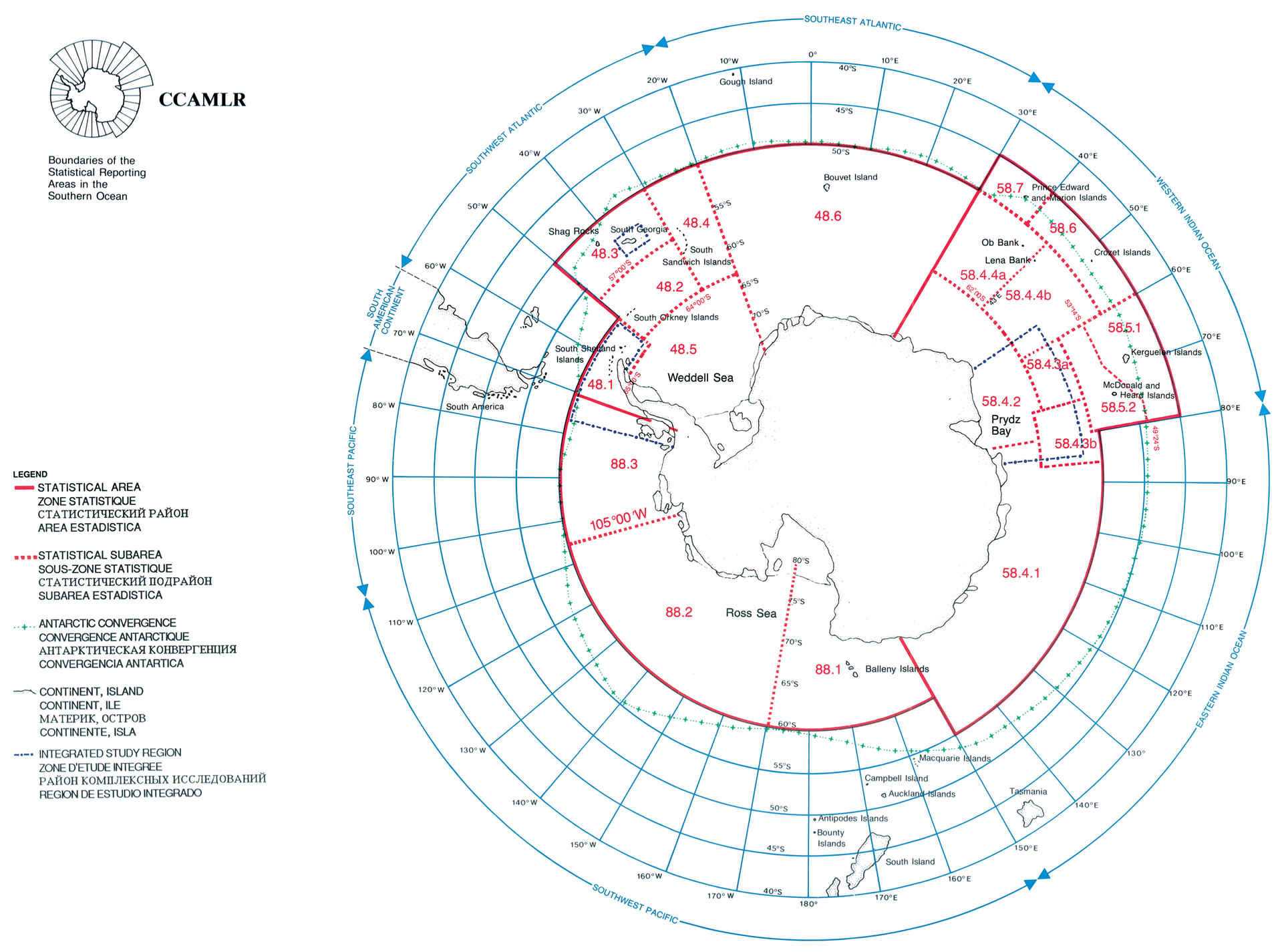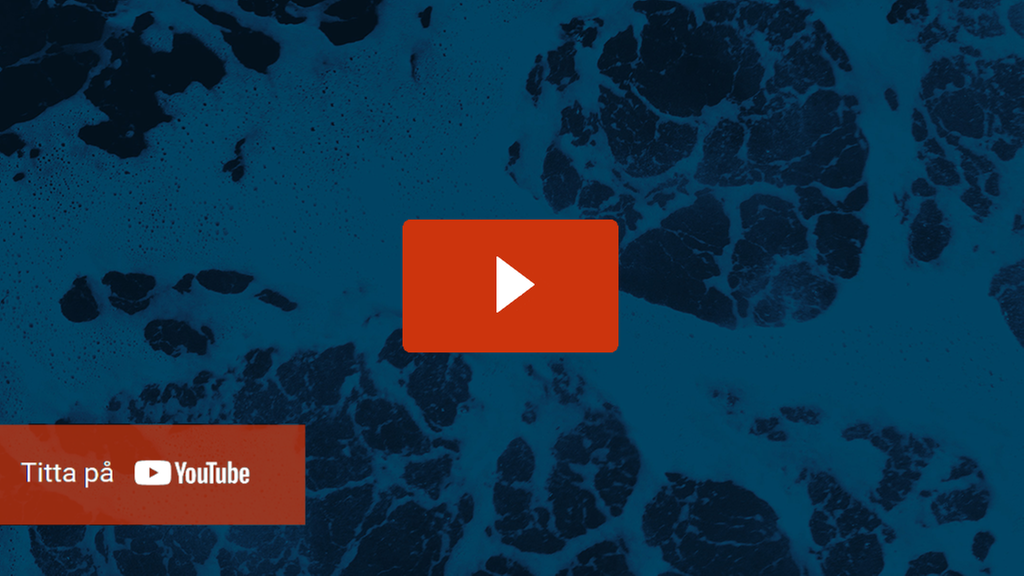Commission for the Conservation of Antarctic Marine Living Resources
Sweden joined the Commission for the conservation of Antarctic Marine Living Resources (CCAMLR) in 1984 and has since participated in the annual Scientific Committee and Commission meetings.
Apart from research, Sweden is committed to conservation of marine life and a precautionary approach to fishing in the Southern Ocean.
Ecosystem-based management started in Antarctica in the 70’s
The Commission for the Conservation of Antarctic Marine Living Resources (CCAMLR) has managed the marine living resources in the Southern Ocean (fig.1) for 35 years. From its initiation, CCAMLR's main objective has been the ‘maintenance of ecological relationships between harvested, dependent and related populations’, utilising a new ‘ecosystem approach’ to fisheries management. CCAMLR has been described as a conservation organisation with the attributes of a regional fisheries management organization. The negotiating parties to the Convention were innovative when it pioneered an ecosystem approach to marine resource management already in the 1970’s, and CCAMLR is seen as an example of best practice in managing marine resources in international waters.
Largest Marine Protected Area (MPA) in the world – 1.55 million km2
The (at the time) world’s largest MPA (proposed by New Zealand and the USA), covering an area of 1.55 million km2 in the Ross Sea, will come into force in December 2017. CCAMLR’s 25 members (24 nations and the European Union) approved the creation of this MPA by consensus at the 2016 Commission meeting. The MPA will be protected from commercial fishing for 35 years.
Sweden has actively supported the Ross Sea MPA proposal and continues to support the MPA proposals in East Antarctica (proposed by Australia, France and the EU) and in the Weddell Sea (proposed by Germany and the EU). Sweden is also committed to progress within the protocol on environmental protection to the Antarctic Treaty.
Fisheries of the Southern Ocean
Fishers in CCAMLR's Convention Area currently target Patagonian toothfish (Dissostichus eleginoides), Antarctic toothfish (Dissostichus mawsoni), mackerel icefish (Champsocephalus gunnari) and Antarctic krill (Euphausia superba). The Scientific Committee and its subsidiary body, the Working Group on Fish Stock Assessment, annually assess the fisheries in the Convention and recommend Total Allowable Catches (TACs) to the Commission.
The Convention excludes management of whales, which are managed under the International Convention for the Regulation of Whaling (1946) and through the International Whaling Commission (IWC), and seals, which are managed under the Convention for the Conservation of Antarctic Seals, CCAS (1972).

Figure 1: Situated in the Southern Ocean, the CCAMLR Convention Area represents about 10% of the Earth's surface and surrounds the Antarctic continent.
Collective action in Antarctica
Jakob Granit is Director General for the Swedish Agency for Marine and Water Management, SwAM, and the Chair of the Commission for the Conservation of Antarctic Marine Living Resources, CCAMLR.




